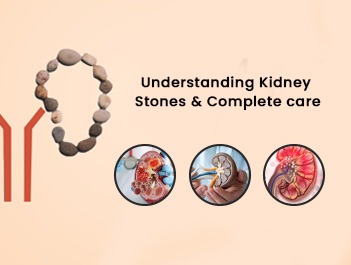
Comprehensive Guide to Nosebleeds Causes, Treatments, and Expert Care Kukatpally, Hyderabad

Nosebleeds, or epistaxis, are a common occurrence that can range from a mild inconvenience to a cause for concern. Although they are often harmless, frequent or severe nosebleeds may indicate underlying health issues. If you’re searching for the best doctors for nosebleed treatment near Kukatpally, Hyderabad, expert care is available at Anu Neurology and Urology Clinic – Neuro & Multispeciality, led by Dr. Anusha Challa, a trusted specialist in managing nosebleeds and related conditions.
Understanding Nosebleeds
A nosebleed occurs when blood vessels in the nasal passages break, leading to bleeding from one or both nostrils. It can happen spontaneously or due to specific triggers, and it is generally classified into two types:
- Anterior Nosebleeds:
- Bleeding originates from the front part of the nose.
- Most common and usually not serious.
- Posterior Nosebleeds:
- Bleeding occurs deeper in the nasal cavity.
- Often more severe and may require medical attention.
While most nosebleeds are manageable, recurrent episodes warrant evaluation by a specialist, such as the best doctor for nose bleeding treatment in Kukatpally, Hyderabad, Dr. Anusha Challa.
Common Causes of Nosebleeds
Several factors can trigger a nosebleed, including:
- Environmental Factors
- Dry air, especially during winter or in air-conditioned spaces, can dry out nasal membranes.
- Exposure to irritants like smoke, pollution, or strong chemicals.
- Injuries and Trauma
- Accidental hits to the nose.
- Excessive nose picking or vigorous blowing.
- Medical Conditions
- Allergies or Infections: Conditions like sinusitis or rhinitis can irritate the nasal lining.
- High Blood Pressure: Strains blood vessels, increasing the risk of rupture.
- Blood Disorders: Conditions affecting clotting, such as hemophilia or leukemia.
- Medications
- Overuse of nasal sprays.
- Blood-thinning medications like aspirin or anticoagulants.
- Other Causes
- Structural abnormalities, such as a deviated septum.
- Tumors or polyps in the nasal cavity.
Understanding the root cause is crucial for effective treatment, which is why consulting the best doctors for nosebleed treatment near Kukatpally, Hyderabad, is essential.
Emergency Tips for Nosebleeds
Nosebleeds, while often harmless, can be alarming. Knowing how to handle them calmly and effectively is essential. Here are key emergency tips for managing nosebleeds:
- Stay Calm and Sit Upright:
- Sit down and lean slightly forward to prevent swallowing blood, which can irritate your stomach.
- Avoid lying down or tilting your head backward.
- Pinch the Nose:
- Use your thumb and index finger to pinch the soft part of your nose just below the bony bridge.
- Apply firm pressure for 10-15 minutes without interruption to help the blood clot.
- Apply a Cold Compress:
- Place a cold pack or a cloth-wrapped bag of ice on the bridge of your nose.
- This helps constrict blood vessels and slows the bleeding.
- Avoid Irritation:
- Do not blow your nose or insert tissues, as this can dislodge clots.
- Refrain from bending over or engaging in strenuous activities after the bleeding stops.
- Seek Medical Help:
- If the bleeding lasts more than 20 minutes or is caused by a head injury, consult a doctor immediately.
These simple steps can help you manage nosebleeds effectively until professional care is available.
When Should You See a Doctor?
While occasional nosebleeds are common, certain signs indicate the need for medical attention:
- Frequent or recurring nosebleeds.
- Bleeding that lasts more than 20 minutes despite attempts to stop it.
- Nosebleeds accompanied by dizziness, weakness, or palpitations.
- Bleeding after head trauma or nasal surgery.
- Blood in stool or urine, which may indicate systemic issues.
If you experience these symptoms, seek immediate care from Dr. Anusha Challa at Anu Neurology and Urology Clinic – Neuro & Multispeciality, known for effective and compassionate treatment.
Diagnosing Nosebleeds
Diagnosing the cause of nosebleeds involves a detailed evaluation, including:
- Medical History:
- History of nosebleeds, medical conditions, and medication use.
- Physical Examination:
- A thorough nasal examination using specialized instruments.
- Diagnostic Tests:
- Blood tests to evaluate clotting function.
- Imaging studies like X-rays or CT scans to detect structural abnormalities.
With expertise and advanced diagnostic tools, Dr. Anusha Challa ensures a precise understanding of your condition for tailored treatment.
Treatment Options for Nosebleeds
The treatment approach depends on the cause, severity, and frequency of nosebleeds. Common methods include:
- First Aid for Immediate Relief
- Sit upright to reduce blood pressure in the veins of the nose.
- Pinch the soft part of the nose for 10-15 minutes to stop bleeding.
- Apply a cold compress to the bridge of the nose to constrict blood vessels.
- Medications
- Nasal sprays or ointments to moisten the nasal lining.
- Medications to treat allergies or infections.
- Medical Procedures
- Cauterization: Sealing the bleeding vessel using heat or chemicals.
- Nasal Packing: Inserting gauze or specialized packing to apply pressure and stop bleeding.
- Endoscopic Surgery: Addressing structural issues or removing polyps if necessary.
Preventing Nosebleeds
Prevention plays a key role in reducing the recurrence of nosebleeds. Here are some practical tips:
- Maintain Nasal Hydration:
- Use a humidifier, especially in dry environments.
- Apply saline nasal sprays to keep the nasal passages moist.
- Avoid Irritants:
- Stay away from smoke, strong chemicals, and allergens.
- Practice Gentle Habits:
- Avoid picking or blowing your nose too hard.
- Wear protective gear during activities that pose a risk of nasal injury.
- Manage Medical Conditions:
- Keep high blood pressure and allergies under control.
- Follow prescribed medication regimens carefully.
Why Choose Dr. Anusha Challa for Nosebleed Treatment?
When it comes to managing nosebleeds, choosing an experienced specialist is crucial for effective care. Dr. Anusha Challa, at Anu Neurology and Urology Clinic – Neuro & Multispeciality, stands out as the best doctor for nose bleeding treatment in Kukatpally, Hyderabad.
Key Highlights of Dr. Anusha Challa’s Care:
- Expertise in diagnosing and treating both simple and complex cases of nosebleeds.
- Comprehensive approach that addresses underlying causes.
- Use of advanced techniques and state-of-the-art equipment.
- Compassionate care tailored to each patient’s needs.
Conclusion
Nosebleeds may appear trivial, but frequent or severe episodes should never be ignored. Early diagnosis and treatment can address underlying causes, prevent complications, and improve quality of life.
If you or a loved one is experiencing nosebleeds, don’t delay seeking expert care. Visit Anu Neurology and Urology Clinic – Neuro & Multispeciality for comprehensive and personalized treatment. Under the expert guidance of Dr. Anusha Challa, you’ll receive the best care to ensure long-term relief and peace of mind. Schedule your consultation today and take the first step toward better health!
General healthcare is essential to promoting overall well-being, reducing the risk of serious health problems, and improving life expectancy. It involves a combination of medical, psychological, and social support to help individuals live healthier, more fulfilling lives.
Recent Posts



Understanding Kidney Stones and Complete care Kukatpally, Hyderabad

